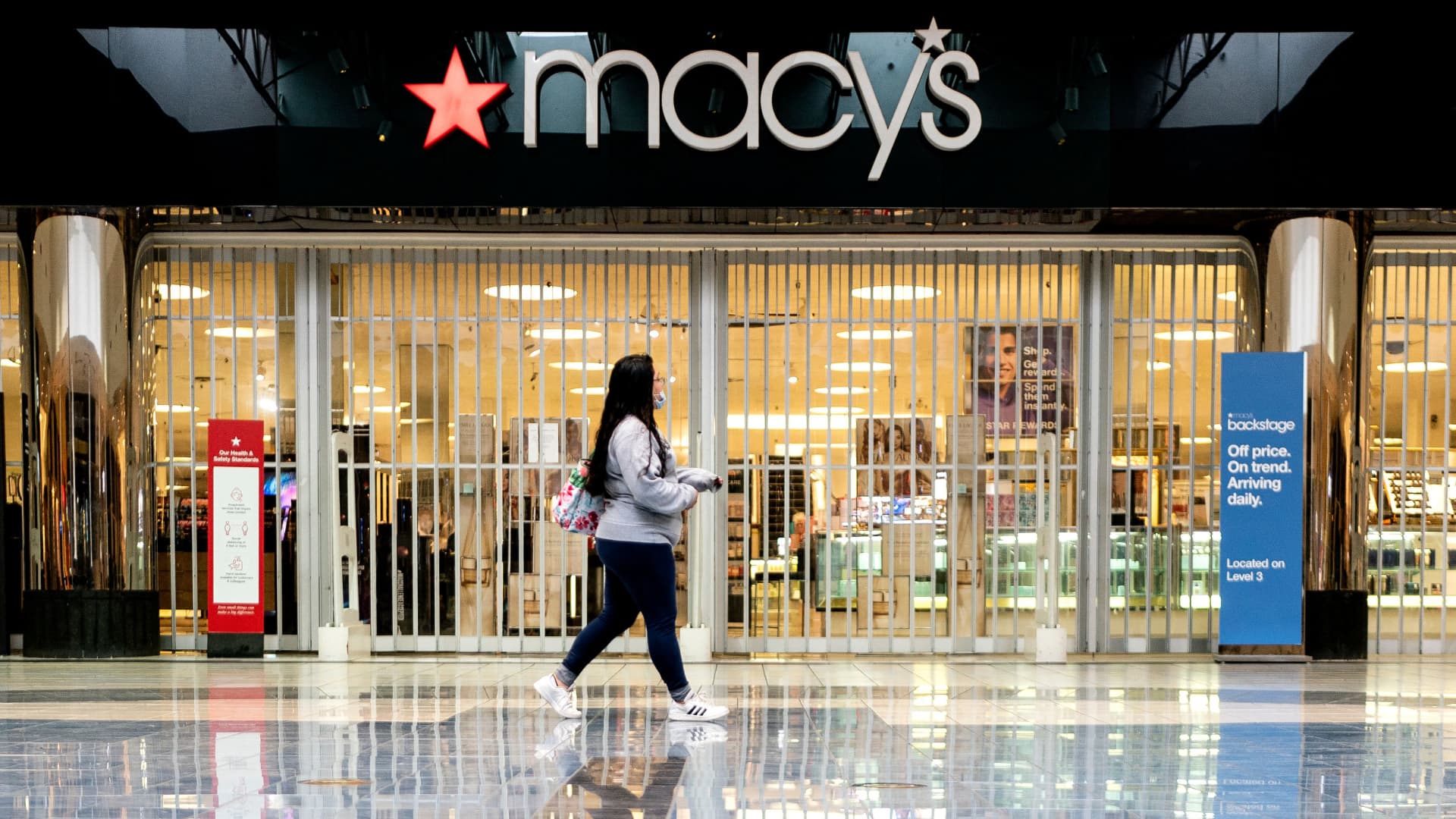Macy’s warns that inflation-squeezed consumers may choose to spend on travel over shopping

As inflation threatens to weigh on consumer demand, particularly among low-to-middle income consumers, Macy’s says more shoppers could be faced with a consequential choice: Head to the mall or take a summer vacation.
“The biggest challenge that we’ve had in terms of thinking about managing through the beginning of 2022, is where is the demand going to come from,” Macy’s chief financial officer, Adrian Mitchell, said during a presentation Thursday morning at J.P. Morgan’s annual Retail Round-Up event.
“We do believe the demand is out there,” he said. “We do believe that the consumer is going to be spending. But are they going to be spending on discretionary items that we sell, or are they going to be spending on an airline ticket to Florida, or travel, or going out to restaurants more?”
This is creating a level of unpredictability that Macy’s must plan carefully around, Mitchell said. For example, the retailer doesn’t want to order too many beach cover-ups or suitcases, if that’s not what shoppers are splurging on over the summer months.
The department store chain would be far from alone in navigating such a tricky dynamic, where more recession signs are emerging. Economists at Deutsche Bank said this week that spreading inflation and the requisite interest rate hikes to combat it likely will send the U.S. into recession in 2023. The bond market also recently flashed a classic recession indicator, in which the 2-year Treasury yield rises above the 10-year note.
There are expectations that some Americans, especially those in lower-wage jobs, will have to sacrifice some expenses to spend elsewhere. They might prioritize a long-awaited vacation or concert ticket over a new swimsuit or handbag.
Some early inflation trade-offs are already taking place, according to one report. Consumers are spending 59% more, on average, at gas and convenience stores than they were a year earlier, based on the latest data in Numerator’s Shopping Behavior Index. The increases are most pronounced for low-and-middle-income tiers, it said. In turn, discretionary categories including home improvement and beauty are seeing the biggest declines, week by week, in unit sales across income levels, Numerator found.
Levi Strauss & Co. CEO Chip Bergh told CNBC on Wednesday that the denim retailer has yet to notice consumers opt for less expensive goods amid inflationary pressures, and that demand has remained robust. To be sure, Bergh said some consumers have just started to dip into their savings accounts for extra cash — a trend Levi is monitoring closely. “We don’t have our head in the sand,” he said.
Levi was confident enough to reiterate its full-year outlook, while Macy’s has yet to adjust the 2022 financial forecast it gave back in February, calling for sales to be flat to up 1% compared with 2021 levels.
Macy’s said Thursday that it has recently tracked a cooling off in demand for certain home goods and casual apparel relative to the peak of the pandemic. But at the same time, it said weddings are quickly picking up and that’s predicted to drive sales of dresses, cosmetics and men’s tailored clothing.
Still, Mitchell emphasized that Macy’s remains cautious.
“Even though the consumer is healthy, we do see that inflation is elevated more so than what we expected coming into the year,” he said. “And we also recognize that the supply chain disruptions are not solved.”
Nordstrom, also at the J.P. Morgan retail event this week, noted that its typically affluent customer base doesn’t tend to spend more or less as gas prices ebb and flow. The stock market tends to correlate more closely with the performance of its business, said CEO Erik Nordstrom.




